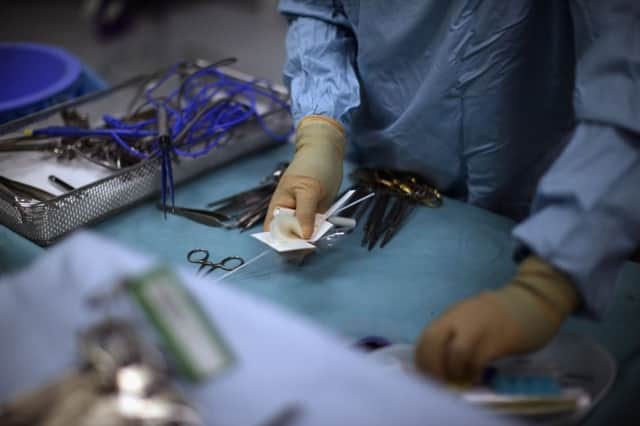Scots patients losing out on new heart surgery


The Transcatheter Aortic Valve Implantation (Tavi) procedure provides an alternative to open-heart surgery for patients who are too sick to undergo the more invasive operation.
But a letter to health boards from the acting Chief Medical Officer (CMO) has raised fears many boards are not referring enough patients for the operation, leading to an investigation into the reasons behind this.
Advertisement
Hide AdAdvertisement
Hide AdThe national Tavi service was set up at Edinburgh Royal Infirmary at the end of 2012. It is used to treat people with the potentially fatal heart condition aortic stenosis, which restricts bloodflow to the heart. The condition affects around 3 per cent of the population over 75. The most effective treatment is to replace the valve through open-heart surgery, of which there are around 900 operations per year. But the Tavi procedure is less invasive, as a replacement valve is passed through a hole in the groin up to a patient’s heart.
In a letter to NHS medical directors, Dr Aileen Keel said officials were trying to understand a variation in referral patterns. The group had noticed a “large discrepancy” in the number of cases referred by NHS boards.
Dr Keel wrote: “Of particular interest is that the number of Tavi procedures per annum would be substantially higher than at present, if all boards had the same referral rate per head of their population as the highest-referring boards.
“The concern is that the current rate of Tavi procedures per million population in Scotland is less than in other parts of the UK and Europe, and we need to establish whether more needs to be done to identify people who may be suitable for Tavi.”
Dr Keel urged boards to make sure medical professionals were aware of the Tavi treatment.
June Davison, senior cardiac nurse at the British Heart Foundation, said: “Many factors could influence the variation in referral patterns, so it’s right that the chief medical officer is seeking to understand what they are.”
A Scottish Government spokesman said: “In its first year of operation, the national Tavi service was expected to complete 50 procedures. The team carried out 65 Tavi procedures.”
Dr Neal Uren, clinical director for cardiac services in NHS Lothian, said: “Since the service began nearly two years ago, we have treated 116 patients from all over Scotland.”